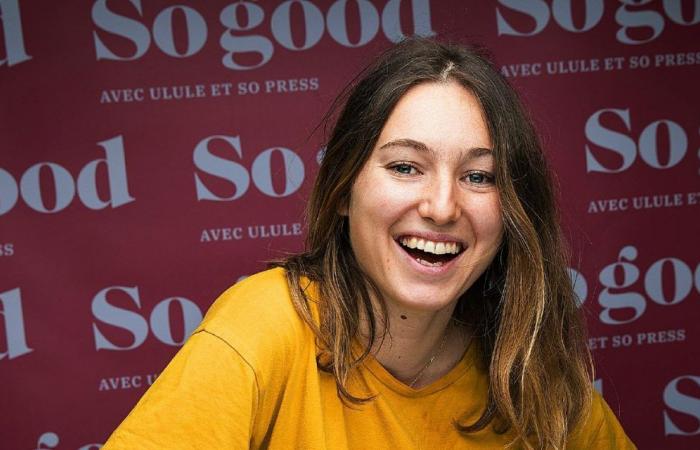How are you experiencing your return from Greece, after an expedition of several weeks without telephone network?
It was an intense return! I had left with Under the Pole, an underwater exploration program that conducts scientific research with CNRS divers. When my phone picked up the signal again, I saw the death of Françoise Hardy, the dissolution of… The political context suspended current laws, particularly on eternal pollutants that we had been working on for months.
Like Hugo Clément or Salomé Saqué, do you define yourself as a media to raise awareness among young people?
Completely. Well, I don’t define myself, I don’t know if what we do is journalism, politics, activism. We want to inform with a critical mind, based on the facts, but by offering mobilization tools, for example, like explaining how to make a proxy. But we go further than a journalist, who cannot appeal to votes.
What is your role during this early legislative campaign?
There are two issues. We want to fight against abstention and get people to vote, since voters become activists. Let civil society mobilize, athletes, personalities… I have never agreed to join a political party, I do not want to be a deputy, I want to keep my freedom of speech, which is 100 times more precious. On the other hand, we go into the field to convince people to choose the person who is least far from their ideas. Tell them that even if we are angry with a party that has disappointed us, it is better than losing this democratic space.
Your book “For an ecological uprising” (Éditions du Seuil) was published exactly one year ago. What conclusions do you draw from this experience?
It allowed me to impose the terms of the debate. I was no longer invited simply to talk about a subject, but I could say what we were going to talk about. The substance. To frame the debate. We save time, it was very powerful. That’s why I want to rewrite one, on health and the climate, on eternal pollutants, pesticides, the links with diseases like Alzheimer’s and Parkinson’s. We are exposed, we are living a huge health catastrophe, we are putting our children in danger, fertility is declining with our lifestyle when we think we are at the height of progress!
You recently went to Norway to protest against the exploitation of the seabed and to see a fish farm. How do you organize your daily life in relation to your commitments?
I don’t have a daily routine. It’s built through encounters, it’s always exciting. In Norway, people were worried that the Arctic was opening up to mining. Next year, I’m going to Oxford for a Master’s degree to continue my studies (she has a degree in political science). I want to get some perspective, read, do research…
I have also become a big fan of boats, I want to delve deeper into the subject of the ocean, which totally fascinates me. We rarely talk about what happens there, even though the sea allows us to feed ourselves and breathe. It’s not nothing!
Reducing comfort will not be a reduction in well-being. In Europe, we have a high standard of living, even though we are the continent that takes the most antidepressants. GDP is not correlated with well-being. It’s a joke we tell ourselves.
How can we talk about climate issues and changing our behavior without causing fear?
We forget that climate change is already here. So, we either endure them or we choose. In a huge part of the globe, the heat has become so intense that the body cannot fight, people are literally dying of heat, in India, in Saudi Arabia, and it is the most precarious who drink. Ideally, we would all like to continue living as we do today, but that is impossible. We’ll have to get started, there’s work to do. We are going to have to change our habits, we are going to feel this change. But I never feel so free as on a boat, with a very simple way of life, the freedom is immense, it’s the same in the mountains. What I mean is that reducing comfort will not be reducing well-being. In Europe, we have a high standard of living, even though we are the continent that takes the most antidepressants. GDP is not correlated with well-being. It’s a joke we tell ourselves.
What is your position on nuclear power, a subject at the heart of the legislative campaign?
On a moral and ethical level, we wonder what we are going to do with the waste that we are going to leave behind. But, pragmatically, we stop unnecessary energy expenditures, such as private jets, and we do not put all our eggs in one basket so as not to be dependent on a single energy source. So, I am not totally anti-nuclear, but we cannot bet everything on it. Let us first be more sober and more efficient with our energy expenditures.
What are your plans now?
I had to leave. But, at the moment, I am campaigning in Paris and also on the ground, in winnable constituencies. Then I go hiking or boating. But I always travel by train: I’ve been to Greece, Norway, Finland… You can do everything by train, as long as you have time. And if the world doesn’t collapse by then…






